The following is a report of our virtual visit as part of our Synodal process. If you have any corrections, please let us know.
“Covid is very contagious, but love, compassion and solidarity are much more contagious!” 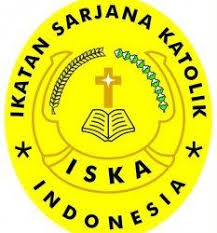
Summary: On June 26, ICMICA team conducted a virtual visit with ISKA Indonesia Ikatan Sarjana Katolik Indonesia (ISKA, Indonesian Catholic graduates association). The team included Budi Tjahjono, Kevin Ahern and Philippe Ledouble. ISKA was represented by an intergenerational group of six leaders, Hermien Kleden, Prasetyo Nuhardjanto, Joanes Joko, Ferusta Nova Adi Pratama, and J. Carmelo.
Founded in 1952, ISKA unites approximately 3,000 Catholic intellectuals from 14 of the 34 provinces of Indonesia organized with 122 local branches. The movement is served and financed by the members themselves. There are no paid staff.
From our discussion, we heard several important points:
- The challenge of engaging younger members: ISKA reports that recruiting and engaging younger members is a significant challenge. Nevertheless, it was notable that the members chosen to participate on the call included two members who would identify as “millennials.” These young people were encouraged to share honestly as part of the discussion. One reported that “younger members feel awkward to communicate with senior members. For example, for a discussion/seminar, the issues are not the same. The issues of the millennials are not the same with the senior members.”
- IMCS Relations: Many ISKA members are former members of the IMCS affiliate in Indonesia, PMKRI (Union of Catholic University Students of the Republic of Indonesia / Perhimpunan Mahasiswa Katolik Republik Indonesia/PMKRI). The process of transition from PMKRI to ISKA is not as smooth as it could be.
- A Renewed Mission following COVID: For ISKA, COVID has meant that many traditional programs have not been able to be organized in the same way as before. This crisis has opened up new doors for new activities, including collecting and sending over 800 COVID kits to convents and small clinics and “ ISKA CHANNEL” a Youtube channel with a series of online videos addressing a number of topics, from Fratelli Tutti to COVID. See https://www.youtube.com/channel/UCWWnpBzlDaDXdOtdOyNFD_A/videos for the chanell.
- The mission of Catholic intellectuals in society: For ISKA, an important element of their mission is to encourage and support Catholic intellectuals to engage in civil society and politics. The context of Indonesia, as a democracy with a large Muslim majority, offers unique challanges in this regard. ISKA leaders are proud of their members who are taking on leadership roles in civil society and the government, including helping to mobilize 40,000 COVID Volunteers.
- Solidarity beyond borders: A major theme for ISKA in recent years has been “solidarity beyond borders.” COVID has helped to illuminate the importance of this. One of the leaders, when reflecting on this in terms of relations within ICMICA, reflected that “in the past, we divided by region. COVID pandemic teaches us to think beyond borders. How can we shift from regional structures to connect with people on themes. The pandemic is asking how we can connect with the world not just regions.”
Local and National: While some groups are “dormant,” ISKA has over 122 local branches. The local structure is similar to the national level. Local activities include discussion on thematic issues; engaging local issues, such as responding to COVID and taking part in local government and church activities. Local groups, in terms of activities, are independent. The key word is interdependency between the national and local structure. Local groups often organize charity activities such as serving those who are in needs. Others, including those in Borneo, Ambon, Sulawesi, and Flores are involved in the Church in ensuring the local culture to be taken into consideration. So, the inculturation of the Church is part of the activities of ISKA and its members. They also work with teachers, nurses, fishermen, etc to see their needs and difficulties with the view to provide them some assistance.

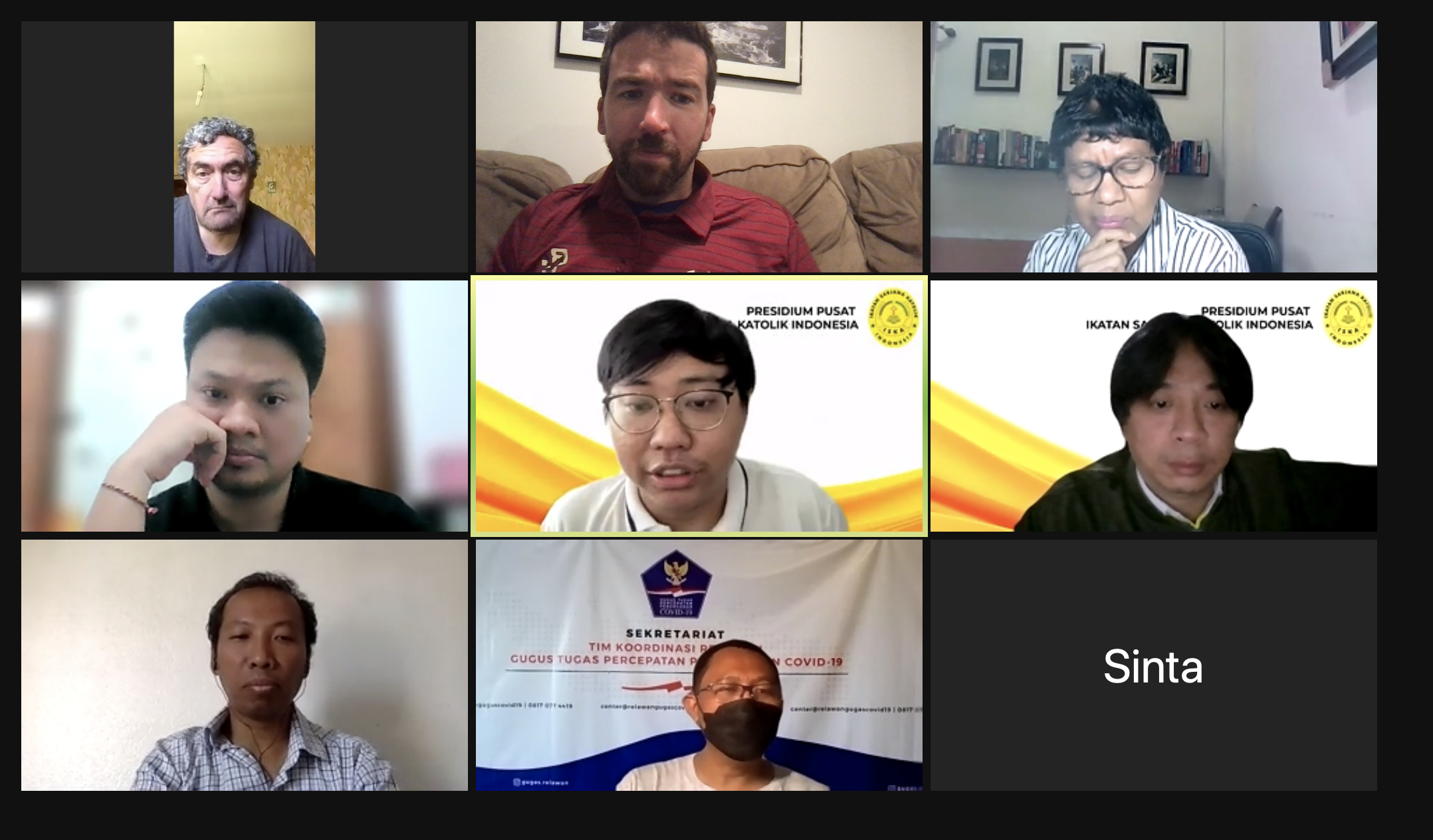
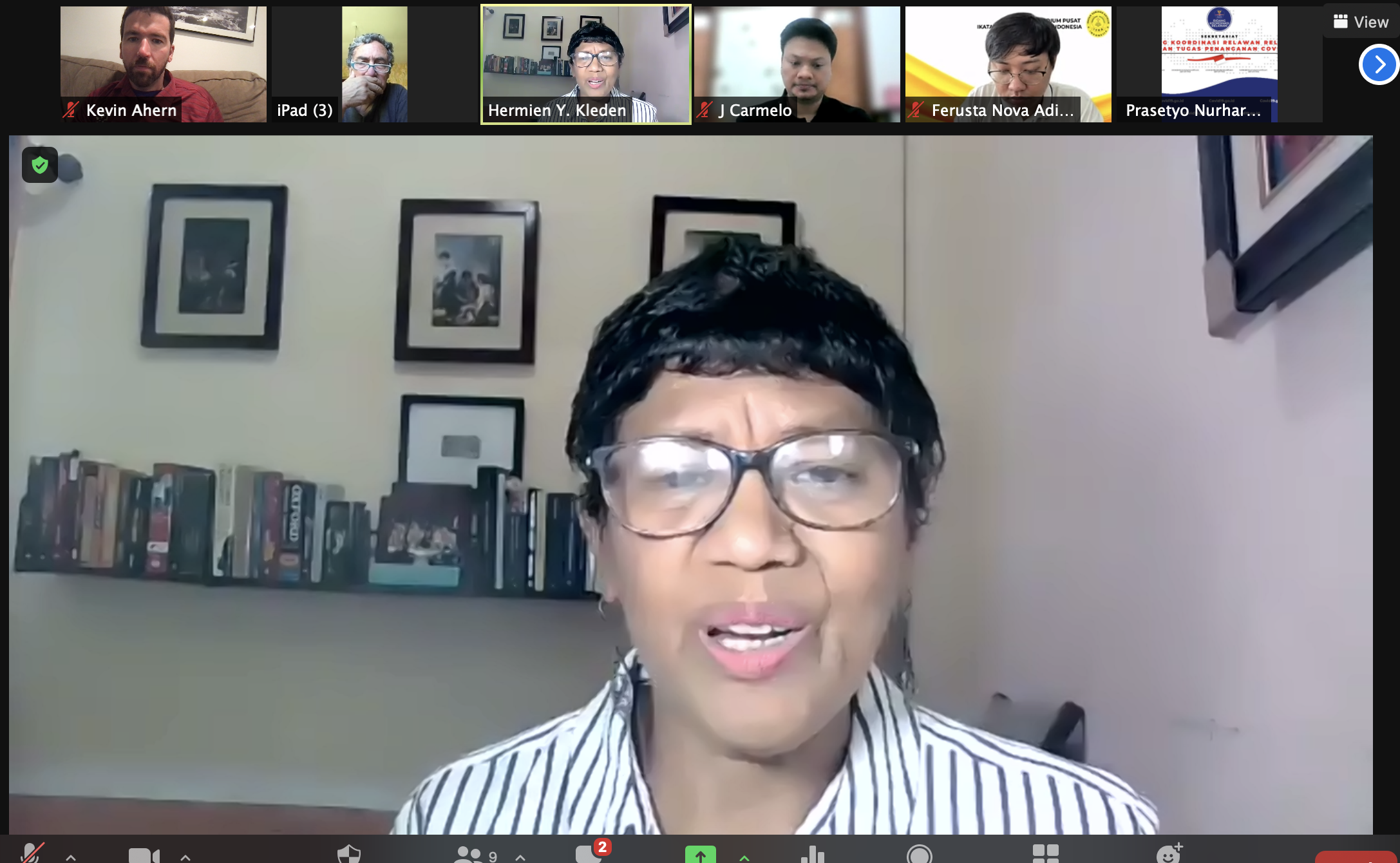
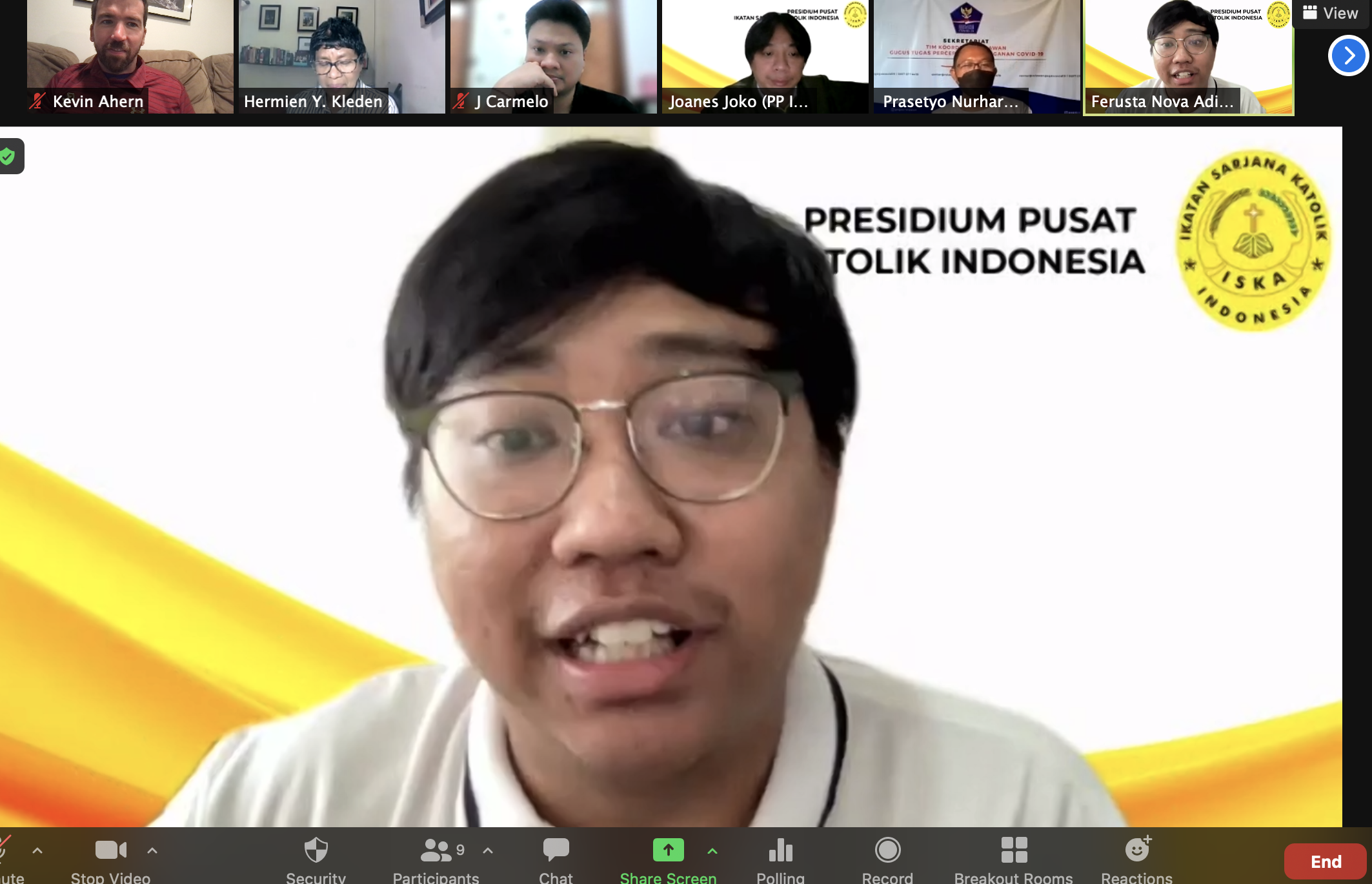
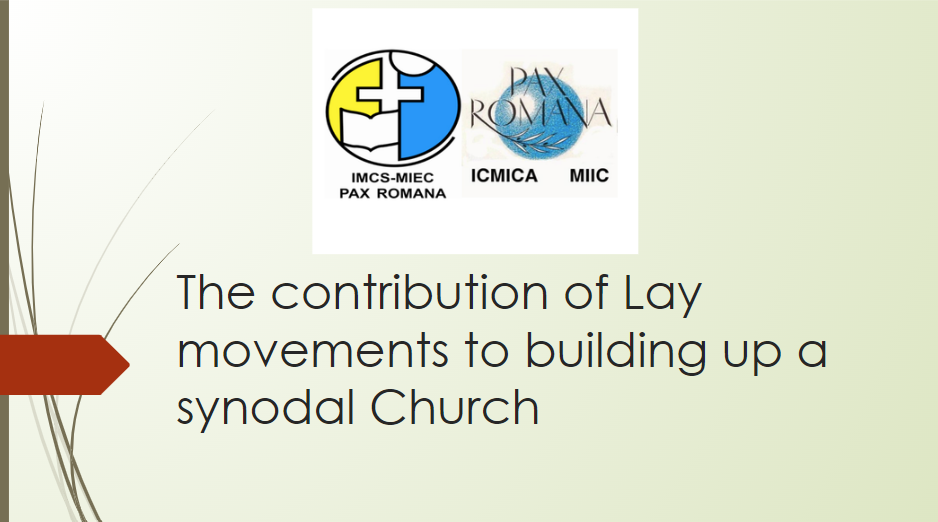
Leave A Comment
You must be logged in to post a comment.